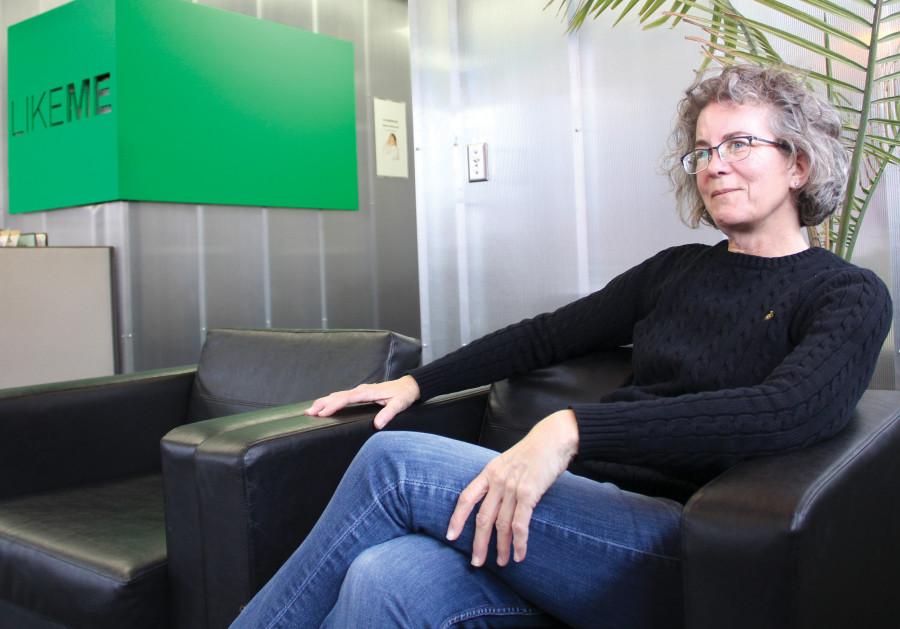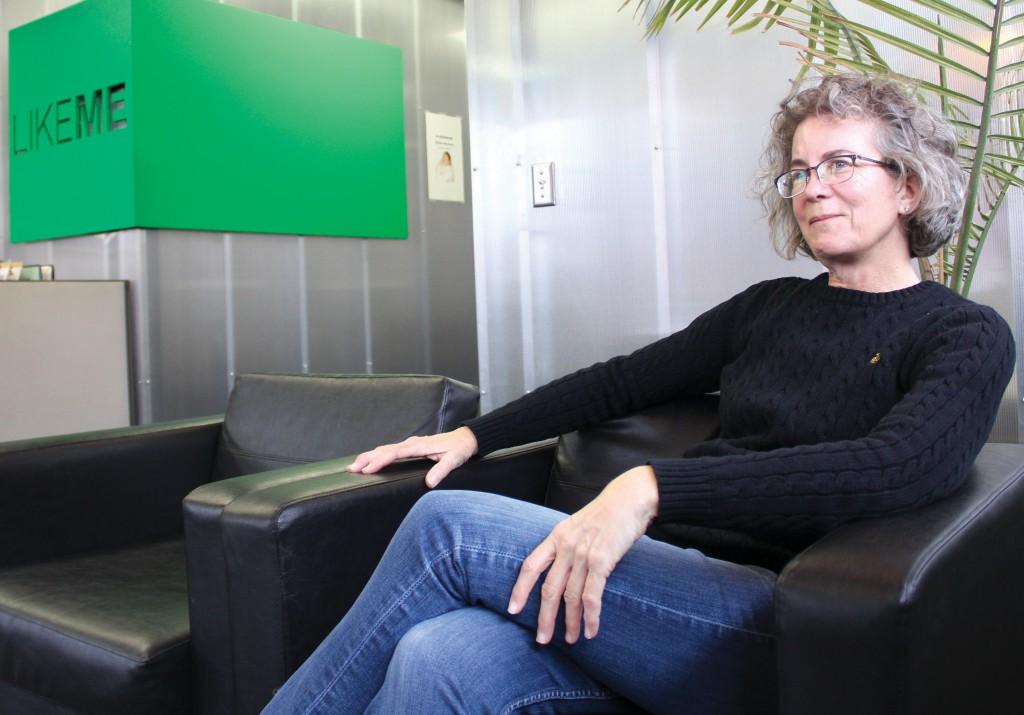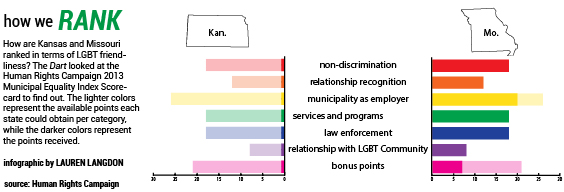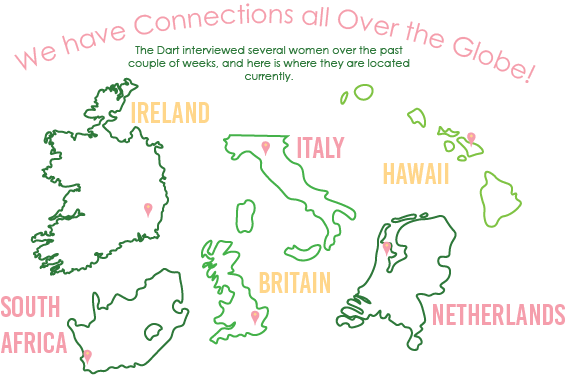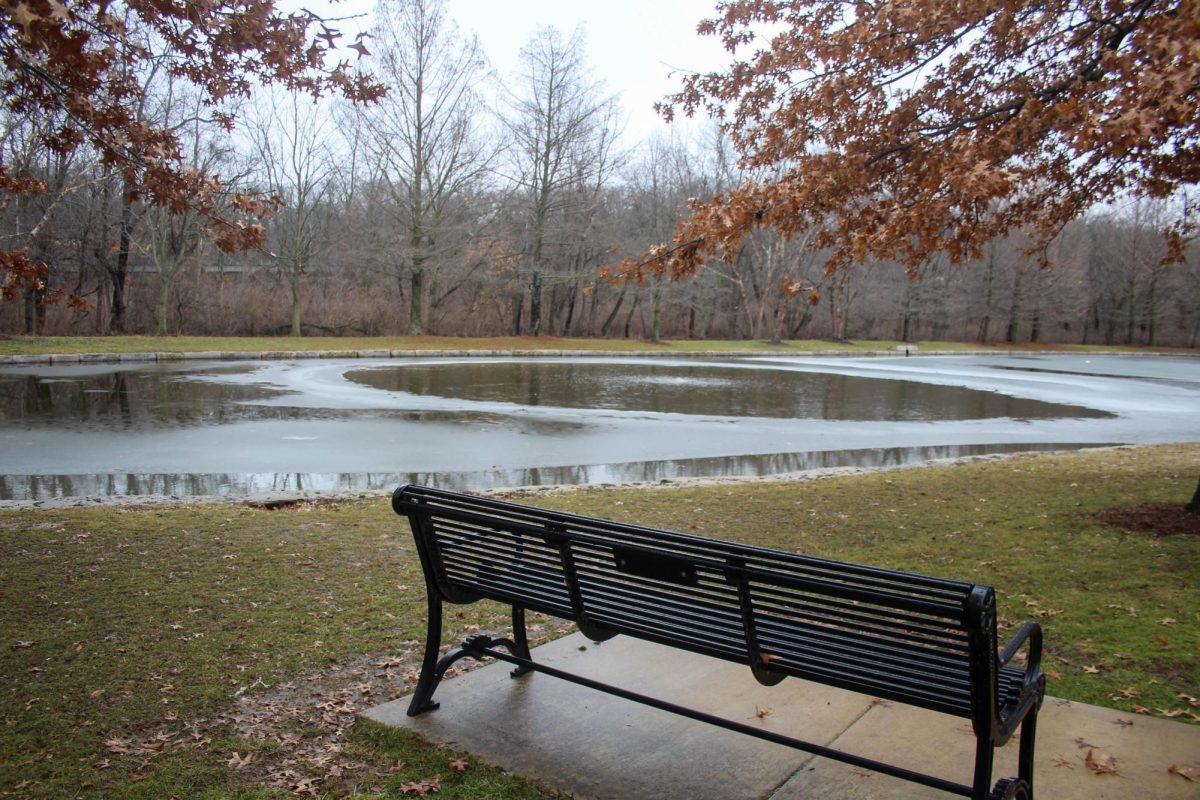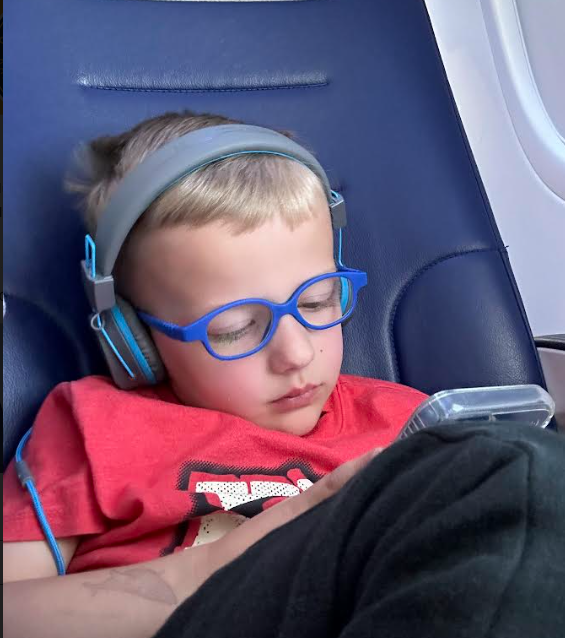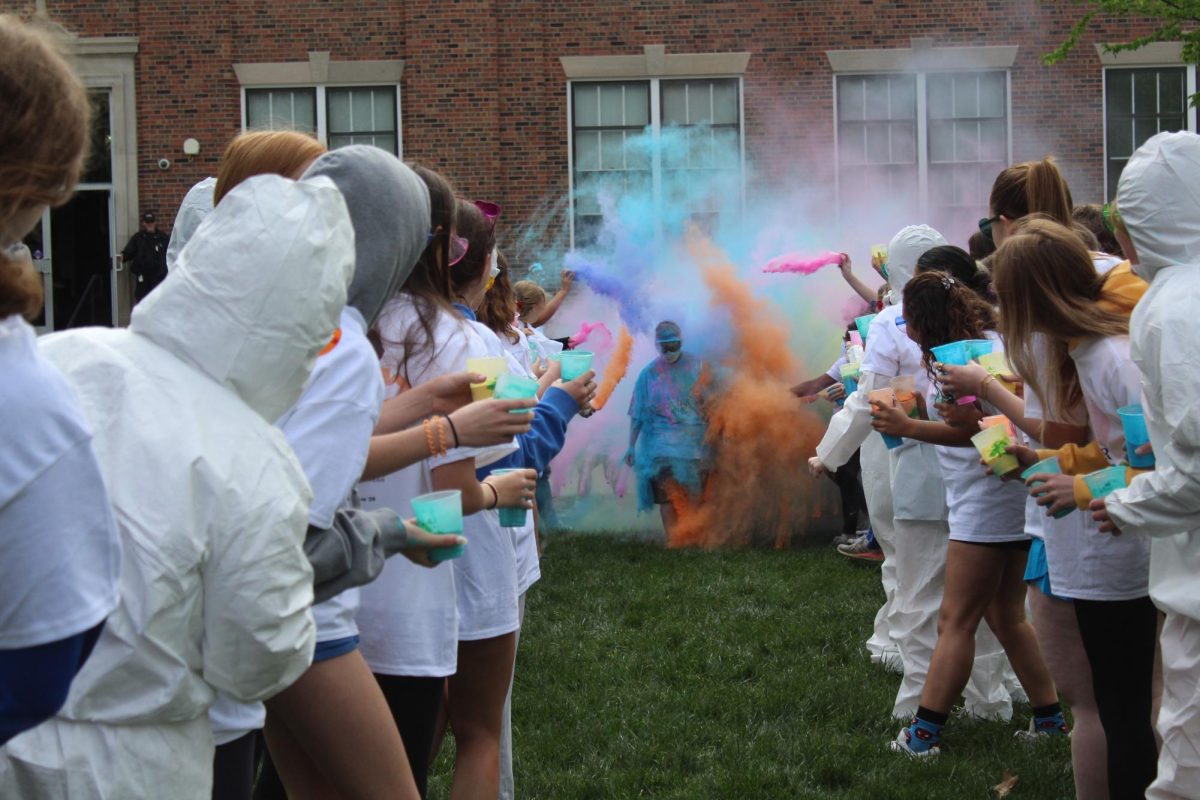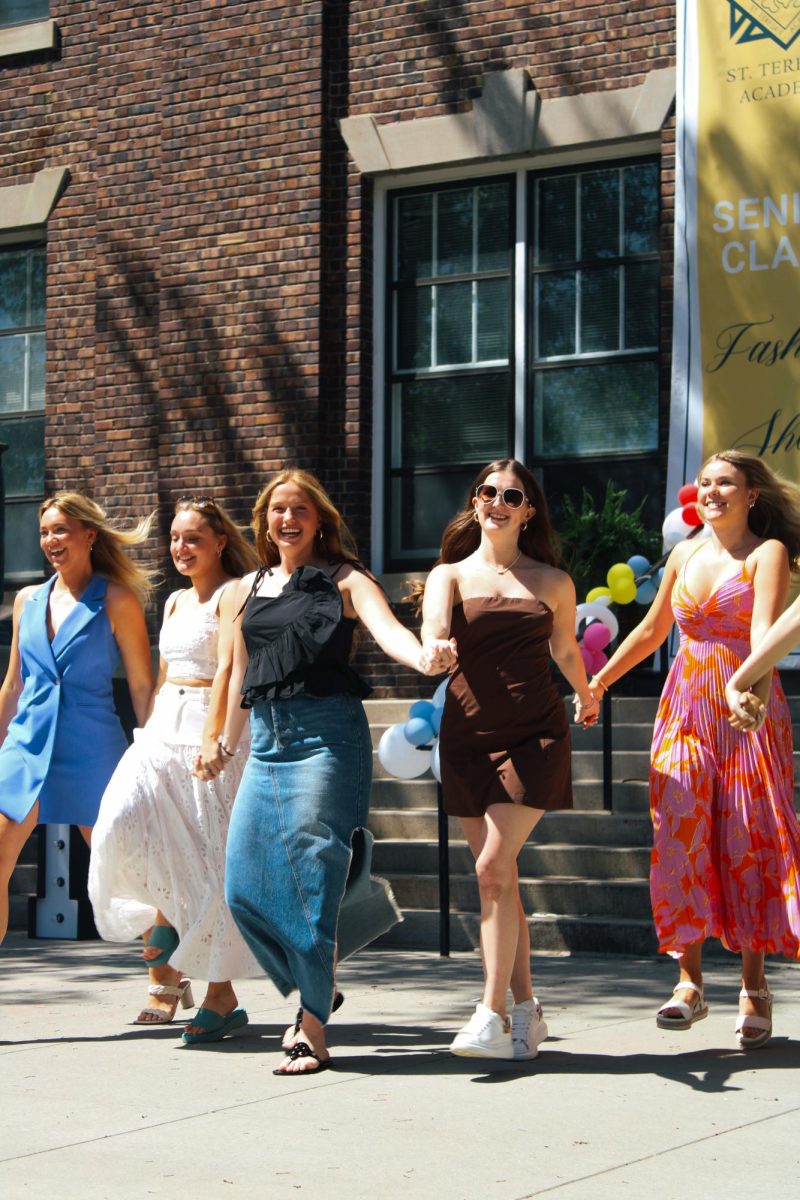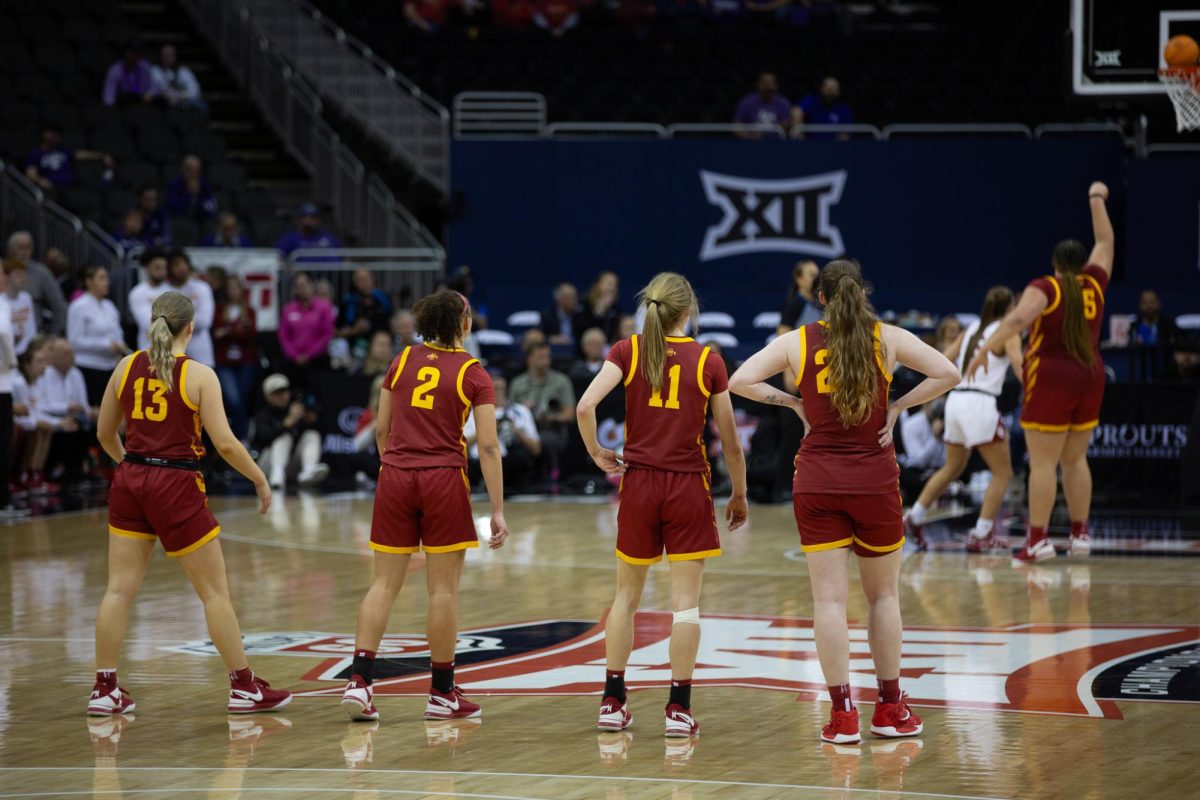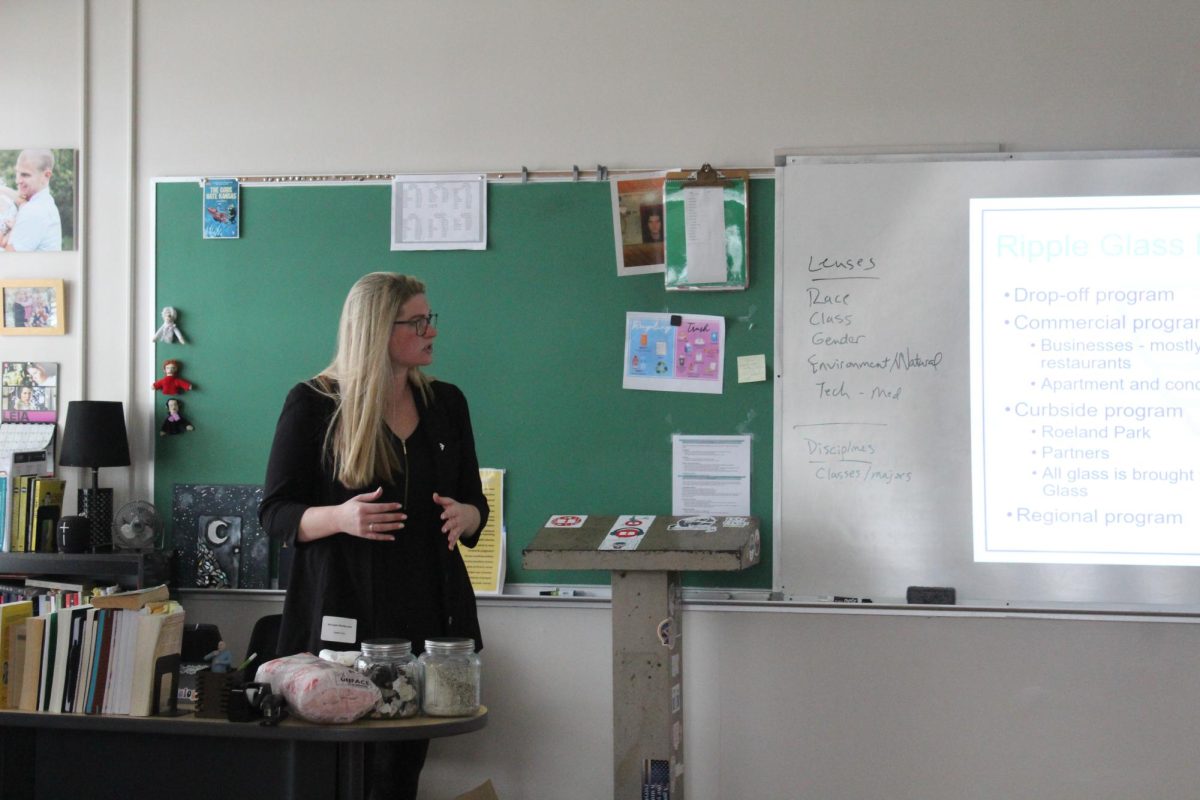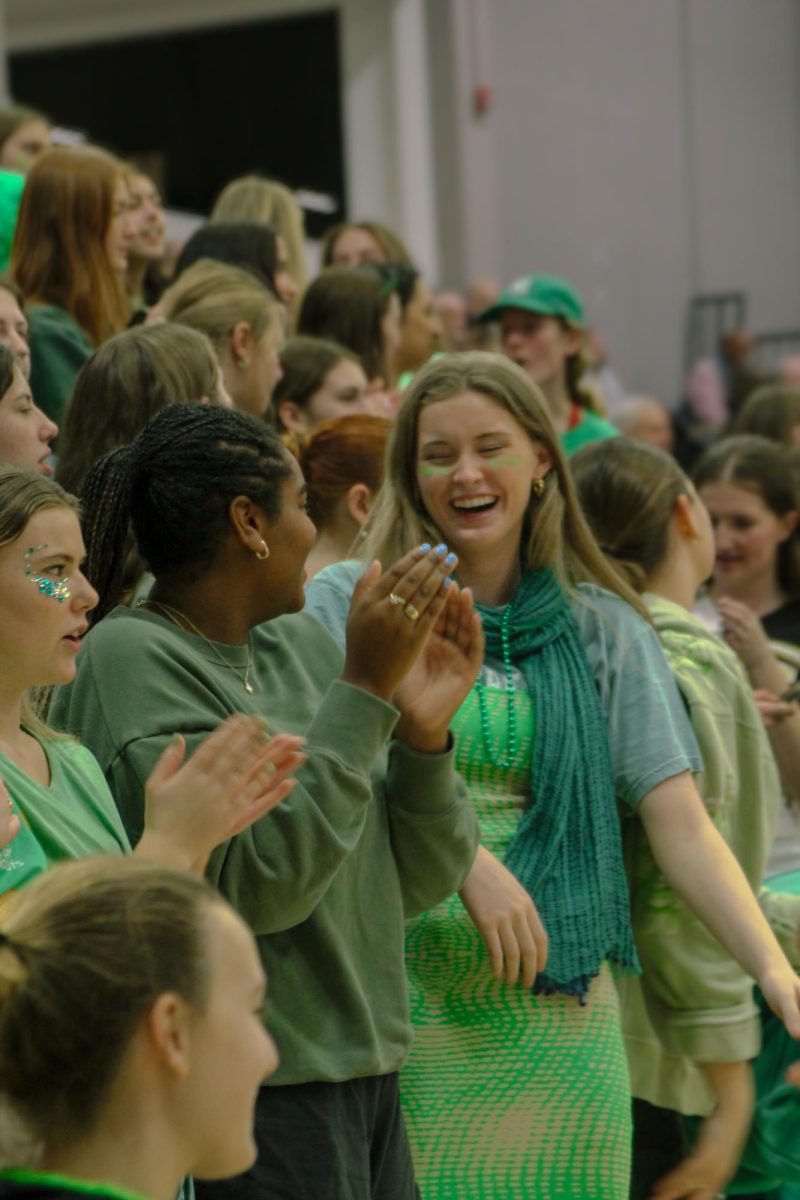story by Libby Hyde, photos by Lauren Langdon
Felicia Kyle is a board member and regular volunteer at a local community center for lesbian, gay, bisexual and transgender people. Every Sunday, she sits patiently at the front desk of LikeMe Lighthouse, waiting to let visitors into the center.
The Lighthouse’s main goal, according to Kyle, is to provide a place for people to come, meet someone like them, and bridge that gap. Though her role in the “big picture” is small, Kyle said, she has experienced firsthand the positive effects of having an LGBT center in the area.
“I really, truly believe that if you understand that the world is bigger, and that there are a lot of folks out there, its easier to ask, ‘Why can’t we all get along?’” Kyle said. “The division between Kansas and Missouri — really, who knew?”
In a study published in 2013 by the Human Rights Campaign, cities were rated based on laws, policies, services of municipalities and the inclusion of LGBT people that live in each city. Cities were assigned a score out of 100 based on their LGBT friendliness. The study rated 291 cities from every state in the nation representing over 77 million Americans.
Kansas City, Mo. received a score of 100, while Kansas City, Kan. received a score of 0.
Kyle was not shocked by the statistics. When she was 14 years old, she moved from St. Louis, Mo. to Olathe, Kan. As a young girl, she was surprised at the amount of diversity that she experienced in St. Louis, which she did not seem to find in Kansas.
“Maybe it was just me, and I was only 14, but there was a sense of separation [in Kansas],” Kyle said. “There was no mix. I was stunned at the cultural difference between St. Louis and Kansas City, Kan. If you don’t know about [people] different from you, you just have unanswered questions or ignorance.”
Kyle said she could not think of an LGBT center on the Kansas side of Kansas City, other than Gay-Straight Alliances (GSA) or other programs run through schools. Similarly, senior Katie Crow, an active member in the LGBT community, could name at least five LGBT centers on the Missouri side, yet not any on the Kansas side.
Given STA’s location and that students attend from both sides of the state line, this issue hits close to home for students.
Kansas lawmakers have recently been in national news for attempting to pass a bill that allows businesses, hotels and restaurants to refuse service to gay couples based on religious beliefs. The Bill passed through the House of Representatives and will now go to the Kansas Senate. The Bill has caused controversy on a national scale, some sources quoted in the International Business Times going as far as to say it encourages people to “condone open discrimination.”
“Why are we excluding anybody for any reason?” Kyle said. “Unless you try to hit me in the head, I want you to be a part of the family. I just do, no matter my religion or political feelings.”
According to the Human Rights Campaign, Kansas City, Mo. is also one of at least 190 cities and counties in the US that prohibit employment discrimination based on gender identity in public and private jobs.
Crow was not surprised by the large gap between Kansas’ and Missouri’s scores on the Human Rights Campaign’s study. Some speculate that the lack of resources on the Kansas side is correlated to citizens’ lack of support for the LGBT community, according to Crow. Crow also said Missouri may have more resources because it has more of a diverse population. Kyle agreed, also saying that there may be a lack of leadership on the Kansas side.
The lack of need, however, Kyle said, is not the problem.
“There is less of a mix of urban diversity in Kansas,” Kyle said. “Kansas for the longest time was farming, and in all fairness, it’s not that they are less able to be accepting, but there is just less urban diversity.”
However, others stated that the reason Kansas City, Missouri has more resources is because it has a longer history of the LGBT rights movement.
One of the first activism groups in the US was in Missouri. It inspired the name of the Phoenix Leadership Team. A group that Crow is involved in, EQUAL (Empowering Queer Activists and Leaders), is a branch off of that.
Gay rights history traces back in Missouri, but not in Kansas.
For people in the LGBT community in Kansas City, Mo., there are many resources, according to Kyle. Places like Lighthouse, Phoenix Leadership Team and EQUAL provide resources such as group discussions for people struggling with sexuality.
Kyle sees the divide of Kansas City, commenting that “you can’t read the book if you can’t find it, you can’t go to the party if you’re not invited. It’s just that simple: [resources are] just not provided.”
Kyle said in a perfect world there would be more LGBT resources in the Kansas area too, but in a perfect world, these resources also would not be necessary.



